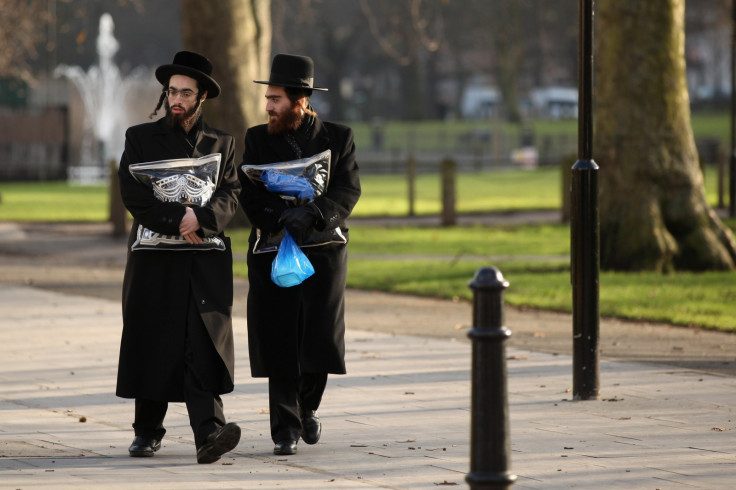Jewish Eruv: What is it and why could it be implemented in north London?

A coalition of synagogues is seeking approval to build a Jewish eruv in north-west London. The plans would see fishing wire suspended from poles in 40 locations across six miles of Camden, including parts of Finchley Road, Primrose Hill and Hampstead.
IBTimes UK rounds up everything you need to know about a Jewish eruv and what it is.
What is a Jewish eruv?
An eruv is an area that allows Jewish people to carry or push objects in public on the Sabbath days (sunset on Friday until sunset on Saturday). In orthodox Judaism people are prohibited from carrying anything outside their private spaces at this time.
An enclosed area is considered to be a "private space", and therefore, the concept of an eruv – which is enclosed by boundaries – came about. In ancient times, rabbis came to the conclusion that if an area of a house was enclosed in a sacred space, they could be considered as one big house and, therefore, people would be allowed to treat it as their private space or home.
In light of this, an eruv has to be seen as completely enclosed. However, a traditional eruv is not enclosed by building walls and, instead, is enclosed through natural boundaries such as railway lines. Additionally, an eruv must cover a large enough space to enclose 600,000 or more – including Jewish and non-Jewish people – or it is not considered a valid eruv.
What can Jewish people do within an eruv (and what can't they do)?
The eruv allows Jewish people to follow the same rules in the area that they would do in their homes during the Sabbath. Therefore, carrying and pushing is allowed within the eruv and prevents pregnant women and disabled people from being housebound during this time.
Additionally, an eruv would enable people to carry house keys, food or water, prayer shawls, essential medicines, nappies, a walking frame or crutches. It also allows them to go outside with extra clothing, such as a raincoat.
There are some things that are still not permitted to be carried even within an eruv, such as items that are prohibited from being moved on the Sabbath days. This includes mobile phones, pens, wallets, or items that are for use after the Sabbath.
Is this the first time a Jewish eruv is being constructed in London?
The UK's first and largest eruv was built in 2003 and enclosed an area of 6.5m sq between Hendon and Mill Hill (the North West London Eruv). Other eruvs in London include one in Edgware, Stanmore, and Elstree and Borehamwood.
© Copyright IBTimes 2024. All rights reserved.






